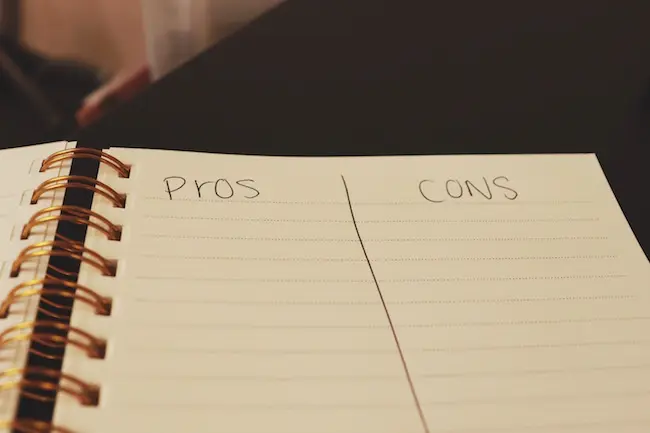The start of a new year means the implementation of new laws in California. These new laws address issues with property transfers, HOAs, and the big one–COVID-19 related rent relief and eviction rules. We are here to break down these laws for you so that you can be informed and prepared for these changes.
Prop 19
Proposition 19 passed in November, which means that inherited homes that are not used as primary residences, such as secondary homes or rentals, must be reassessed at market value when transferred. Previously this was not the case under the Parent-Child Exclusion rule that was established as a result of Prop 58 from 1986. This section of the law goes into effect on February 16, 2021.
The other part of Prop 19 pertains to people over the age of 55 or with specified disabilities. They can now transfer their tax assessments up to three times. Previously this was only allowed one time. These eligible homeowners can also now transfer their tax assessments anywhere within the state and these tax assessments can be transferred to a more expensive home with an upward adjustment. Lastly, the new ordinance expands the group of affected persons to also include victims of wildfires or other natural disasters. This section of the law goes into effect on April 1, 2021. For a detailed breakdown of prop 19, check out our full blog here.
SB 91
SB 91 is crucial for all landlords and tenants to be aware of. Just passed on January 28th, 2021, this bill is designed to assist landlords and tenants throughout California that have been affected by the COVID-19 pandemic.
You may recall that in 2020, AB 3088, also referred to as the Tenant Relief Act, was established to provide this type of assistance. However, the provisions of that ordinance were set to expire at the end of January 2021. These provisions included an eviction moratorium that prevented landlords from evicting tenants that were financially affected by the pandemic.
SB 91 extends the eviction moratorium to June 30, 2021. This makes California the state with the most renter protections in the country. Tenants are still responsible for paying unpaid amounts to landlords, but these unpaid amounts cannot be the basis for an eviction, even after the moratorium ends.
California is set to receive $2.6 billion in federal rental assistance, which will go fund the State Rental Assistance Program. The goal of this program is to help tenants across the state, starting with those income-qualified tenants that are most at-risk with unpaid back rent. A portion of these funds (estimated $150 billion) will also be allocated specifically to tenants in counties with populations less than 200,000. The rental assistance program will begin accepting applications from property owners and tenants in March 2021.
So how does this act help property owners? Landlords that agree to waive 20% of unpaid rent will receive government assistance. When they agree to this waiver, they will become eligible for 80% in rent reimbursements for amounts owed between April 1, 2020 and March 31, 2021.
AB 3182
AB 3182 requires common interest developments (also known as HOAs) to allow at least 25% of owners to rent out their units beginning January 1, 2021. Even if said HOA has not updated their governing documents, this law applies. They are still able to ban short-term rentals (less than 30 days). However, the law prohibits unreasonable restrictions on rental homes, accessory dwelling units (ADUs), or junior accessory dwelling units (JADUs). The term “unreasonable” in this scenario has yet to be completely defined, but if the HOA is found to be placing these unreasonable restrictions, they will be subject to a fine.
SB 1079
The goal of SB 1079 is to level the playing field for home buyers and prevent huge corporations from mass-buying foreclosed homes. The new law gives owner-occupants, tenants, local governments, and nonprofit housing associations a better chance at securing a home by providing a 45-day window to purchase residential property through foreclosure if they can match (in the case of tenants) or exceed (in the case of other buyers) the last and highest bid made on residential single-family homes at a foreclosure auction.
The law also forbids the bundling of multiple homes and selling them to a singular buyer. By selling the properties individually, it gives people who actually plan to live in the home a chance to purchase it. These provisions apply to all residential properties that have one to four housing units.
If you have any questions regarding these new bills, please reach out to us. Subscribe to our newsletter for all the latest updates!
If you found this article helpful, follow us on social media. We post daily tips to help you manage your own rental property:
Steve Welty
Subscribe to our Weekly Newsletter
Join the 5k+ homeowners receiving Local Law Updates and Landlord Tips. Delivered to your inbox every Saturday at 6am PST.
Share this:
Get in touch with us:
We make owning rental property easy.
Choose Your Next Step
Good Life Blogs
We believe that education is empowering.
Pros and Cons of Hiring a Property Management Company
Read about the pros and cons of using a property management company to manage your rental properties. In this article, we touch on what makes a property management company beneficial but also why some people might be hesitant to hire.
Pros and Cons of Rent Control
The subject of rent control has become increasingly popular over the last couple decades. As rent prices continue to skyrocket across the country, more and more tenants get priced out of their homes and neighborhoods. This is why the majority of tenants are in favor of…
Section 8 in San Diego: How It Works
Rental assistance in San Diego is a hot topic as of late. Many landlords and property managers have heard of Section 8, but don’t know all the ins and outs of the program. As of January 2020, all landlords and property managers are required to accept Section 8 housing vouchers as a form of income…









